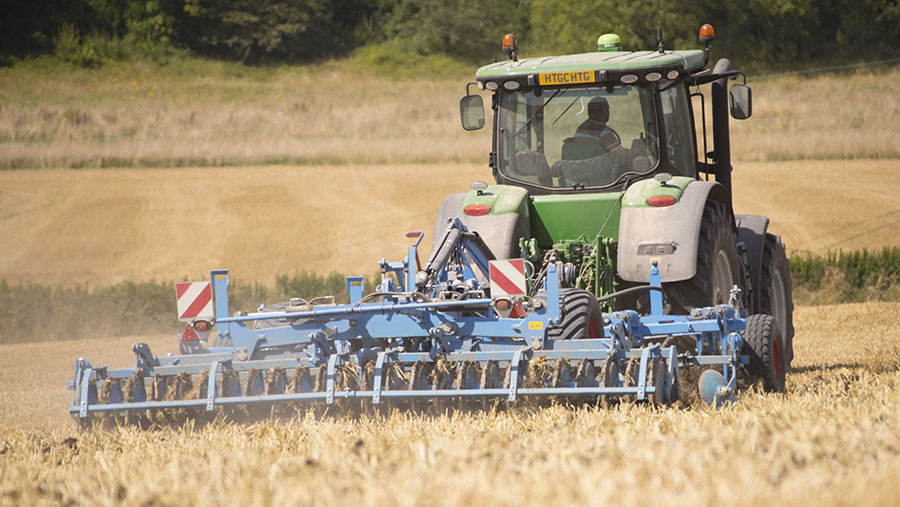NFU: Direct payments a crucial part of future farm support
 © Juice/REX/Shutterstock
© Juice/REX/Shutterstock Direct payments to farmers are crucial for helping farm businesses deal with market volatility and must be retained under any new domestic agricultural policy post Brexit, the NFU has stated.
The call is contained in an NFU policy document, which sets out the union’s case for direct payments more explicitly than in the past.
See also: What’s driving future of farm support post Brexit
The latest paper builds on the policy options contained in an earlier “Vision” document in March, which set out the three cornerstones for a new UK farm support policy.
These are:
- Productivity measures, such as support for research and development, incentives for investment and provision of training and advice
- Volatility measures, such as insurance schemes, loan schemes and direct support
- Environment measures, such as a broad farmed environment scheme and support for managing priority habitats.
The idea is government funding should be available for all three areas, but the amount spent on each would depend on the terms of any eventual Brexit deal and the economic conditions at the time.
Direct payments
In the original paper, the NFU indicated direct support would “remain vital for the stability of some farm businesses”, but added it would “welcome a discussion about a world with no direct support”.
But the new paper – Delivering a bold and ambitious future for farming – makes the case for continued direct payments more strongly.
Under the section on “managing volatility,” the NFU proposes measures that provide “a resilient and relatively stable income profile”.
“In order to support income resilience on farms, decoupled direct payments must remain a key component of a domestic agricultural policy post Brexit,” it said.
“In the short to medium term, they will continue to be a crucial mechanism for supporting farm businesses in dealing with market volatility.”
The report noted the current Basic Payment Scheme has increasingly come with conditions attached to benefit the environment and help young farmers, and the NFU supports this approach for any new domestic scheme.
New deal
Launching the NFU’s policy proposals, president Meurig Raymond said: “Once we leave the EU, we will have the opportunity to develop a new deal for British farmers and citizens.
“We believe that in the future farmers should be able to draw down bespoke assistance from within our three cornerstones of productivity, environment and volatility.
“Crucially, the outputs from these measures are not mutually exclusive; they all work together to enable farming to be competitive, profitable and progressive – a sustainable partner within a dynamic British food supply chain.”
